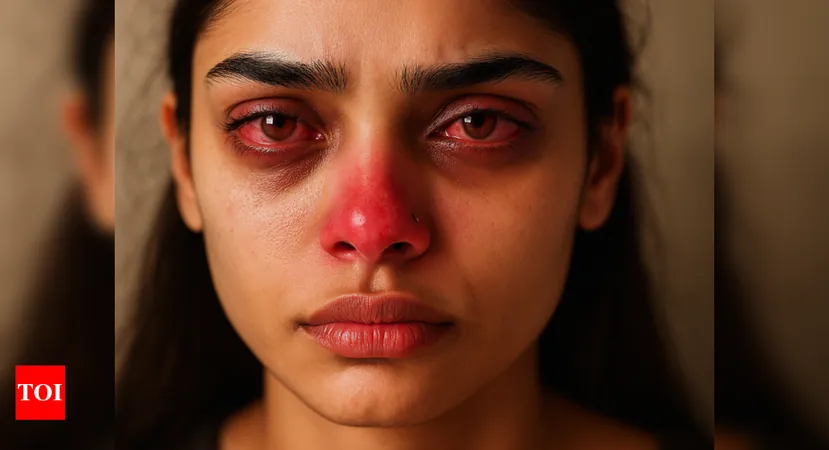
Is It Just a Cold? Discover Why Your Nose is Running This Season!
2025-04-10
Author: Jia
A Surge in Allergies Hits Delhi!
As the seasons change, Delhi is facing an alarming increase in allergy cases, with hospitals bustling with patients suffering from pesky symptoms like sneezing, runny noses, and itchy eyes. It's not just the common cold—this is a full-blown allergy crisis!
Who’s Feeling Under the Weather?
Doctors have reported a daily influx of five to seven patients in outpatient departments complaining of respiratory issues. Symptoms often include irritating sneezing, persistent coughing, and even mild wheezing. It’s easy to confuse these allergy signs with viral infections, which typically come with fever and body aches. Allergies, on the other hand, linger longer without the added fever.
What’s Causing This Allergy Explosion?
Experts like Dr. Ritu Malani from Max Hospital warn that pollen and dust mites are the main culprits behind these seasonal allergies. Pollen levels peak from February to April and again from August to September. Trees, weeds, and grasses contribute significantly to the pollen count, making these months particularly challenging for allergy sufferers.
Know Your Triggers!
According to Dr. Akshay Budhraja from Aakash Healthcare, allergies can strike year-round due to factors like stress, certain foods, and even environmental issues like dust and pet dander. Monitoring your surroundings can help identify specific triggers that provoke symptoms.
Understanding Allergic Reactions
What happens in your body during an allergic reaction? Dr. Suranjit Chatterjee explains that when your immune system mistakenly identifies harmless substances—like pollen or dust mites—as threats, it releases histamines, leading to those frustrating symptoms we all dread: sneezing, nasal congestion, and itchy eyes. Some may even experience throat irritation or persistent dry coughs.
Symptoms and Solutions!
For those suffering from skin reactions, symptoms may include rashes or hives. Standard treatments for allergies typically involve anti-allergics, decongestants, and bronchodilators. If the issue persists, doctors might recommend immunotherapy or injectable treatments for long-term relief.
Stay Safe—Prevent Allergies!
Combat allergies this season by taking precautionary measures: wear masks in pollen-heavy areas, avoid known irritants, and consult with medical professionals for personalized treatment options. Stay informed, stay prepared, and keep those sniffles at bay!

 Brasil (PT)
Brasil (PT)
 Canada (EN)
Canada (EN)
 Chile (ES)
Chile (ES)
 Česko (CS)
Česko (CS)
 대한민국 (KO)
대한민국 (KO)
 España (ES)
España (ES)
 France (FR)
France (FR)
 Hong Kong (EN)
Hong Kong (EN)
 Italia (IT)
Italia (IT)
 日本 (JA)
日本 (JA)
 Magyarország (HU)
Magyarország (HU)
 Norge (NO)
Norge (NO)
 Polska (PL)
Polska (PL)
 Schweiz (DE)
Schweiz (DE)
 Singapore (EN)
Singapore (EN)
 Sverige (SV)
Sverige (SV)
 Suomi (FI)
Suomi (FI)
 Türkiye (TR)
Türkiye (TR)
 الإمارات العربية المتحدة (AR)
الإمارات العربية المتحدة (AR)